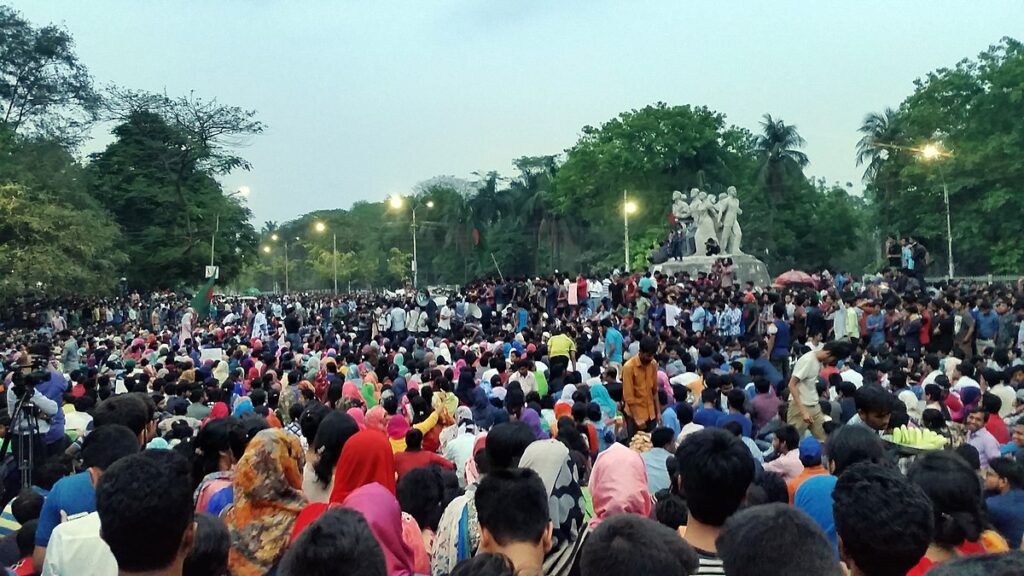Bangladesh finds itself at a crossroads as protests intensify across the country, driven by university students and youth demanding an end to government job quotas. What began on July 1st, has escalated into a significant challenge for Prime Minister Sheikh Hasina’s administration, highlighting deep-seated frustrations over employment opportunities and social inequality.
Historical Context of Job Quotas
The controversy centers on a job quota system initially introduced to honor descendants of those who participated in Bangladesh’s 1971 liberation movement. Over the years, however, the policy has expanded to encompass a broader spectrum, reserving 56 percent of government jobs for specific groups, including descendants of freedom fighters, women, and individuals from “backward districts.”

Current Protests and Participants
Since the High Court reinstated the quota rule, university students have mobilized nationwide, reflecting a diverse cross-section of the educated youth population. Their demands are clear: a fairer distribution of job opportunities based on merit rather than lineage. The protests have not only drawn attention for their scale but also for the resilience and determination of the participants.
Economic Impact and Social Discontent
Critics argue that the job quotas exacerbate unemployment among educated youth, creating a bottleneck in the job market. With Bangladesh boasting economic growth averaging 6.25 percent annually over the last two decades and poverty declining significantly, the failure of these gains to trickle down to university graduates is a poignant grievance fueling the unrest.
Government Response and Public Reaction
Prime Minister Sheikh Hasina’s government has faced mounting pressure to address the protests constructively. While acknowledging the youth’s concerns, the administration has defended the quota system as necessary for social justice and honoring national heroes. However, public sentiment reveals growing dissatisfaction, with clashes between protesters, police, and supporters of the ruling Awami League adding to the tension.
International Perspectives and Economic Growth Challenges
Internationally, Bangladesh’s economic success story in sectors like ready-made garments and remittances has been tempered by ongoing protests. Observers from around the globe emphasize the need for Bangladesh to diversify its economy and attract more foreign direct investment (FDI) to create jobs beyond traditional sectors.
Conclusion
The protests in Bangladesh underscore a critical juncture in the nation’s development trajectory. As the government navigates these challenges, the debate over job quotas resonates beyond immediate policy concerns, touching on broader issues of economic inclusion, social justice, and youth empowerment. The outcomes of these protests will not only shape Bangladesh’s domestic policies but also influence perceptions of its economic resilience and commitment to equitable growth in the international community.
The ongoing dialogue and actions taken by the government in response to these protests will be pivotal in determining the future landscape of employment policies and social cohesion in Bangladesh.








